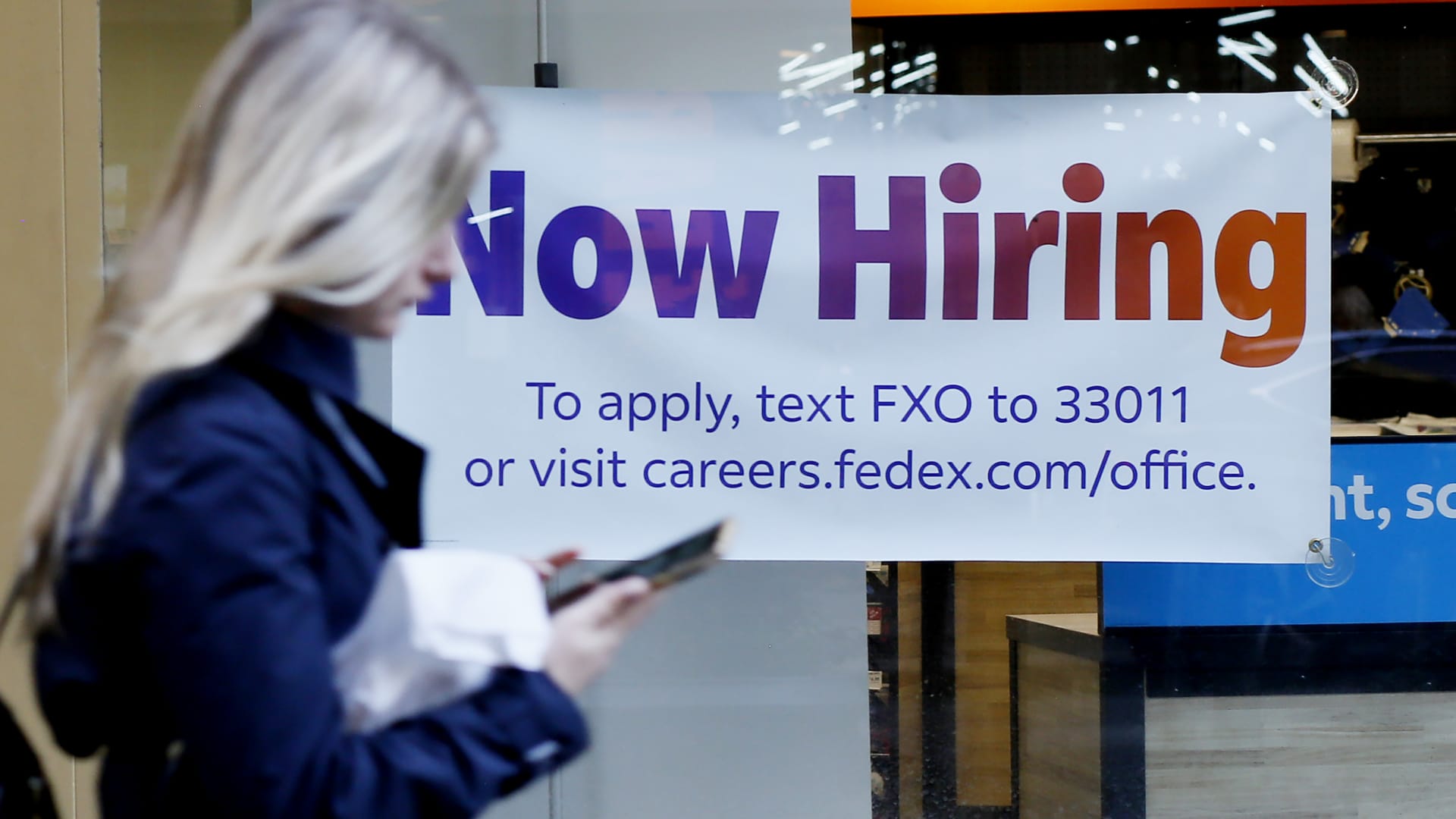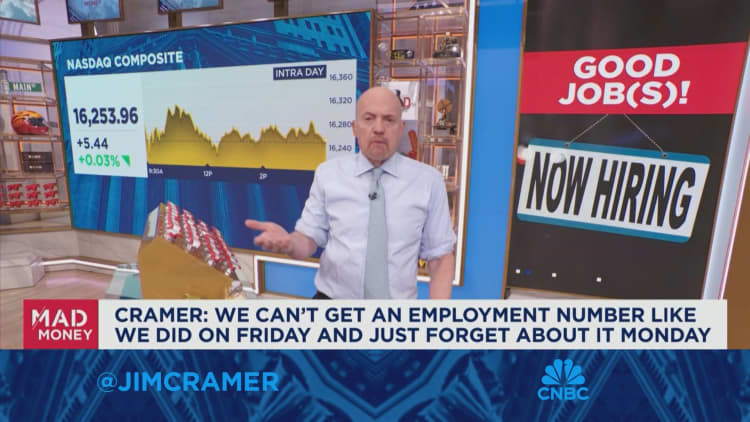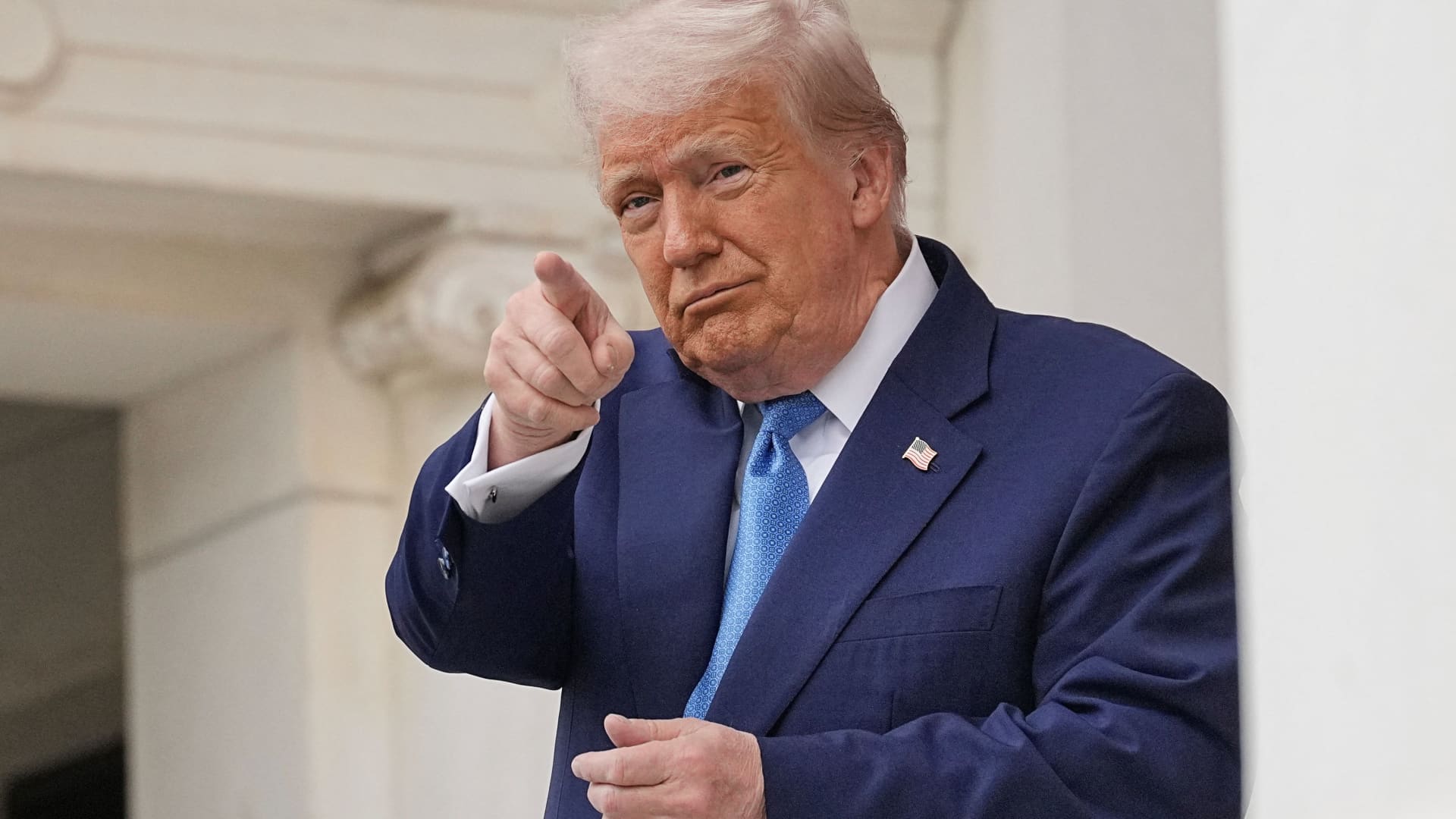Calling the state of the U.S. jobs market these days stable seems like an understatement considering the latest data coming out of the Labor Department.
That’s because most of the past several weeks have shown that first-time claims for unemployment benefits haven’t fluctuated at all — as in zero.
For five of the past six weeks, the level of initial jobless filings totaled exactly 212,000. Given a labor force that is 168 million strong, achieving such stasis seems at least unusual if not uncanny, yet that is what the figures released each Thursday morning since mid-March have shown.
The consistency has raised a few eyebrows on Wall Street. The only week that varied was March 30, with 222,000.
“How is this statistically possible? Five of the last six weeks, the exact same number,” market veteran Jim Bianco, head of Bianco Research, posted Thursday on X.
“Initial claims for unemployment insurance are state programs, with 50 state rules, hundreds of offices, and 50 websites to file. Weather, seasonality, holidays, and economic vibrations drive the number of people filing claims from week to week,” he added. “Yet this measure is so stable that it does not vary by even 1,000 applications a week.”
Others chimed in as well.
“Numbers made up,” one participant on the thread opined, while another said, “Someone’s cooking the books.”
However, others offered more analytical thoughts, attributing the uniformity in data to seasonal adjustments. Tracey Ryniec, a strategist at Zacks Investment Research, suggested: “You can go look at each state Jim. Those vary greatly.”
Indeed, a Labor Department spokesperson noted that while the string of 212,000 prints on the jobless claims data is “uncommon,” it would not be considered anomalous.
The streak “can be reasonably interpreted as an indication that there has been very little volatility in initial claims over this period relative to historical patterns, and that the seasonal adjustment factors are effectively removing seasonality from the aggregate figures reported by states,” the official said.
Moreover, claims not adjusted seasonally have shown substantial fluctuation during the five-week period, registering readings of 202,722; 191,772; 193,921; 197,349; 215,265 and 208,509.
Federal Reserve officials watch the weekly claims numbers as part of their broader assessment of the labor market, which has shown surprising resilience as the central bank has tightened monetary policy.
The Labor Department official also pointed out that new seasonal factors to the claims data were announced a month ago.
“Using the new seasonal adjustment factors, initial claims have been at a fairly consistent level since around mid-September 2023 and even more so since the start of February 2024,” the spokesperson said.

 Accounting6 days ago
Accounting6 days ago
 Economics1 week ago
Economics1 week ago
 Personal Finance6 days ago
Personal Finance6 days ago
 Accounting6 days ago
Accounting6 days ago
 Finance5 days ago
Finance5 days ago
 Economics1 week ago
Economics1 week ago
 Economics6 days ago
Economics6 days ago
 Economics6 days ago
Economics6 days ago






















